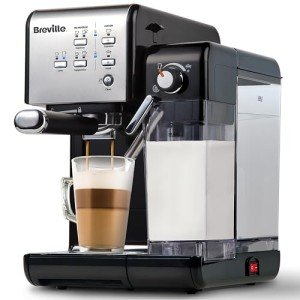The World of High-Quality Espresso Machines: A Comprehensive Guide
Espresso has actually become a cherished beverage among coffee lovers worldwide, understood for its abundant taste, intense aroma, and adaptability. The heart of a fantastic espresso depends on the machine used to brew it. High-quality espresso machines are created to deliver the best shot, making them a necessary financial investment for coffee enthusiasts. This short article checks out different kinds of high-quality espresso machines, their features, upkeep ideas, and responses to frequently asked concerns.
Types of High-Quality Espresso Machines
High-quality espresso machines fall into several classifications, catering to various preferences, skill levels, and budgets. The primary types consist of:
| Type of Machine | Description | Perfect User |
|---|---|---|
| Manual Espresso Machines | Needs user skill to control extraction and pressure. Provides Stainless Steel Espresso Machines over the brewing process. | Experienced baristas and enthusiasts |
| Semi-Automatic Machines | Integrates manual operation with automation. Users manage the grind and tamping, while the machine handles water dispersion. | Intermediate users |
| Automatic Espresso Machines | Automate the developing process, permitting programmable brewing times and temperature levels. | Casual coffee drinkers |
| Super-Automatic Machines | Have integrated grinders and are totally automated, managing everything from grinding to brewing and steaming. | Users looking for benefit |
| Commercial Espresso Machines | Developed for high volume use in coffee shops and dining establishments, providing resilience and speed. | Entrepreneur |
Comprehensive Overview of Each Type
Manual Espresso Machines
- Pros: Complete control over the developing procedure; can produce exceptional quality espresso.
- Cons: Requires substantial ability; lengthy.
Semi-Automatic Machines
- Pros: Balanced control, mixing manual and automatic processes; remarkable quality espresso is still achievable.
- Cons: Requires some understanding and experience to master.
Automatic Espresso Machines
- Pros: User-friendly; minimizes the discovering curve while still producing high-quality espresso.
- Cons: Still requires some understanding of coffee-making essentials.
Super-Automatic Machines
- Pros: Maximal benefit; little skill needed; ideal for people or households who want coffee without fuss.
- Cons: Higher cost point; might lack the fine-tuning abilities of manual machines.
Commercial Espresso Machines
- Pros: Built for durability and performance; often includes features for high-volume turns.
- Cons: Expensive; may be overkill for home use.
Secret Features to Consider
When searching for a high-quality espresso machine, several crucial features need to be considered:
- Pressure and Pump Type: Look for machines with a minimum of 9 bars of pressure, which is vital for extracting the best taste from coffee beans.
- Boiler Type: Single, double, and heat exchanger boilers each impact how the machine performs and the speed of developing.
- Construct Quality: High-quality materials such as stainless steel are more suitable for resilience and looks.
- Alleviate of Use and Cleaning: Some machines require substantial cleansing, while others are created for easy maintenance.
- Temperature Control: Consistent temperature level is important; consider machines with PID controllers for accurate control.
Benefits of High-Quality Espresso Machines
Investing in a high-quality espresso machine provides a wide range of advantages:
- Superior Quality: High-end machines permit higher control, causing tastier espresso.
- Toughness: Built to last, quality machines need less repair work and replacements.
- Personalization: Users can enjoy a customized experience by changing grind size, shot timing, and other settings.
- Increased Convenience: Automatic and super-automatic choices permit aficionados to take pleasure in espresso with very little effort.
Upkeep and Care for High-Quality Espresso Machines
To keep an espresso machine operating optimally, routine upkeep is crucial. Here are tips for keeping a high-quality espresso machine:
Descale Regularly:
- Use a descaling option every few months to prevent buildup of minerals from water, which can impact taste and efficiency.
Tidy the Brew Group:
- For machines with a removable brew group, tidy it regularly to guarantee a tidy extraction.
Replace Water Filters:
- Use a water filter and change it as needed to lessen impurities in your developing water.
Daily Cleanings:
- Rinse the portafilter and group head after each use to avoid oil accumulation.
Keep an Eye on the Parts:
- Monitor seals, gaskets, and other parts for wear and tear and change them as needed.
Frequently Asked Questions (FAQs)
1. What is the very best espresso machine for novices?
For beginners, a semi-automatic machine typically supplies an excellent balance of functionality and control, permitting users to find out the skills necessary for making excellent espresso.
2. Are super-automatic machines worth the financial investment?
Yes, for those who focus on benefit and ease over control, super-automatic machines can be a worthy financial investment, particularly for households or hectic professionals.
3. How much should I anticipate to invest on a high-quality espresso machine?
High-quality espresso machines range considerably in cost, with manual machines beginning at a couple of hundred dollars, while super-automatic or commercial machines can surpass a number of thousand.
4. Can I make other coffee beverages with an espresso machine?
Yes, numerous espresso machines have steam wands or attachments that allow users to develop lattes, cappuccinos, and more.
5. For how long do espresso machines usually last?
With appropriate upkeep, high-quality espresso machines can last over a years, making them a long-lasting financial investment in your coffee enjoyment.
High-quality espresso machines yield a transformative coffee experience, whether taken pleasure in in your home or in a commercial setting. By understanding the types available, their features, and the upkeep needed to keep them running efficiently, consumers can make informed choices that elevate their coffee-drinking experience.

